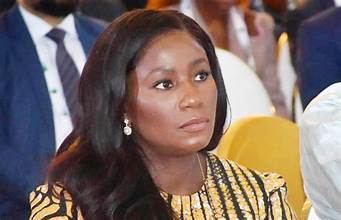
Africa needs women’s perspectives for energy security __Olu Verheijen
Sopuruchi Onwuka
Bringing the perspectives, capacity and the energy of women into the capacity mix remains the critical requirement to accelerate Africa’s development.

Presidential Adviser on Petroleum Resources, Olu Verheijen, declared at an industry conference that harnessing the strength and genius of the women, who make up half of the population, into the mix, is crucial for building the Africa of our dreams.
Mrs Verheijen who is a member of the Women in Energy Network (WIEN) delivered the opening address on “The Future of Energy: Shaping the Workforce of Tomorrow” at the last African Energy Week in Cape Town, South Africa.
WIEN is the foremost gender equity advocate in the Nigerian energy industry. Apart from promoting gender diversity in the corporate and policy leadership of the industry, WIEN also drives robust capacity building and mentorship programs for female professionals.
Mrs Verheijen reminded country delegates and industry captains at the conference that access to energy has become critical in shaping the continent’s future; adding that whereas energy resources including renewables remain abundant, over over 75% of the population lack sufficient energy supply.
She stressed that productive energy workforce would help the continent ensure that energy becomes a tool for driving industrialization and development.
According to her, it will take incredible amounts of human energy and a diversity of talent and expertise to determine the outcome of the delicate balance between energy security, affordability and sustainability for the continent.
She enjoined African governments and industry players to “look beyond the traditional places and welcome a new crop of talent, especially women and young people, who possess global perspective and reach, and understand the context of the 21st century, and are equipped with the fresh perspectives and bold energy to design and implement radical new solutions to lingering problems.”
Mrs Verheijen made a strong case for not just attracting women into technical professions that service the energy industry, but also retaining and sponsoring their advancement to senior executive positions.
She emphasized that women need powerful advocates who actively support their growth and position them for opportunities and ensure their representation at the highest levels in the energy industry.
She described her appointment into President Tinubu’s government as clear example of how credible female talents could be sponsored to highly demanding roles.
“The President could have picked a more traditional choice in the Nigerian context: male, older, more political, more government experience,” she buttressed, saying “I’m not the most likely candidate for such a role in the office of an African president.”
Mrs Verheijen made it clear that the need for sponsoring women into senior positions must recognized by more leaders on the African continent; “not because women are less qualified, or less available, or less endowed with what it takes to lead at the highest levels.”
“No. It is simply that men have simply come to enjoy the longstanding serendipity of being more likely to be sponsored into influential positions. It is that simple. And it is now time for women to enjoy equal access to this, to being bet upon, to being given more chances,” she explained.
In endorsing women for higher roles and positions in the continent, Mrs Verheijen said, “women have proven themselves to be just as capable as men, whether in the energy sector or elsewhere.”



